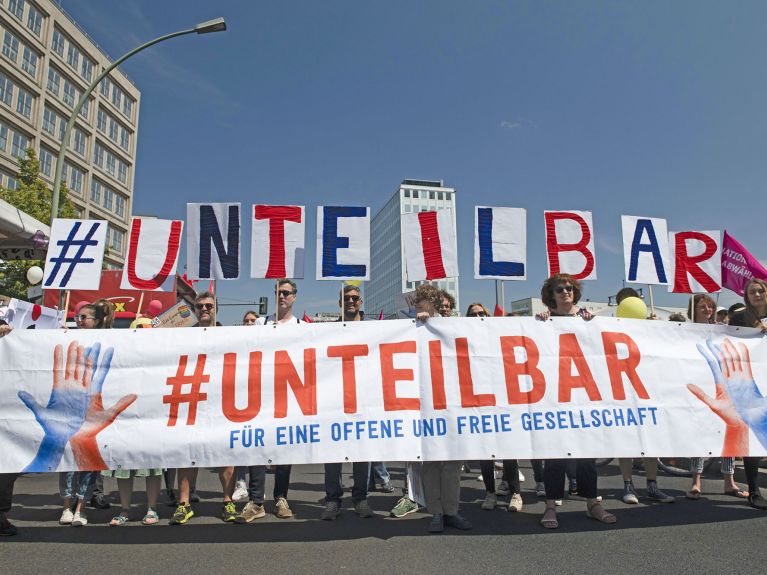Why democracy and human rights are two sides of the same coin
Human rights guarantee that the interests of individuals are protected even when they are not in the majority, says international law expert Mehrdad Payandeh.

At first glance, the relationship between human rights and democracy would appear to be one of almost irresolvable tension: while human rights grant individuals, groups and minorities rights that they can also – and specifically – exercise against the majority, democracy implies the rule of the majority. Can individual rights and freedoms be curtailed in the name of democracy and sovereignty of the people? Are courts “undemocratic” if they call into question parliamentary majority decisions with reference to human rights and the protection of minorities? Playing off democracy against human rights in this way, pitting the majority against the minority, as vigorously pursued by authoritarian regimes and sometimes propagated under the label of illiberal democracy, fails to recognise the fact that the protection of human rights is not an obstacle, but a precondition for the functioning of a sustainable democracy. Human rights guarantee free and fair elections under conditions of political equality. Human rights ensure open communication and a free process of opinion formation. Human rights secure the implementation of democratic decisions and thereby help democratic government to become effective. By limiting the power of the majority, human rights ultimately enable individuals and minorities to accept and live with the decisions of the democratically legitimated majority: democracy promises the minority that it too can become the majority. Human rights assure individuals that their interests will be respected even when they are not in a majority. Just as human rights are most likely to thrive in a democracy, sustainable democratic government is inconceivable without respect for and the protection and realisation of human rights. Human rights and democracy are not opposites, but joint preconditions for the success of a political community. Their interaction enables individuals to live lives of personal and collective self-determination. The protection and realisation of human rights therefore constitute a truly democratic project.
The international law expert teaches at the Bucerius Law School in Hamburg, where his main areas of interest include the protection of human rights, international peace law and the law of the United Nations (UN). Prof Dr Mehrdad Payandeh was appointed to the Committee on the Elimination of Racial Discrimination (CERD) in 2019. The lawyer is the first German expert to become a member of this important UN monitoring body since 2002.
You would like to receive regular information about Germany? Subscribe here:


